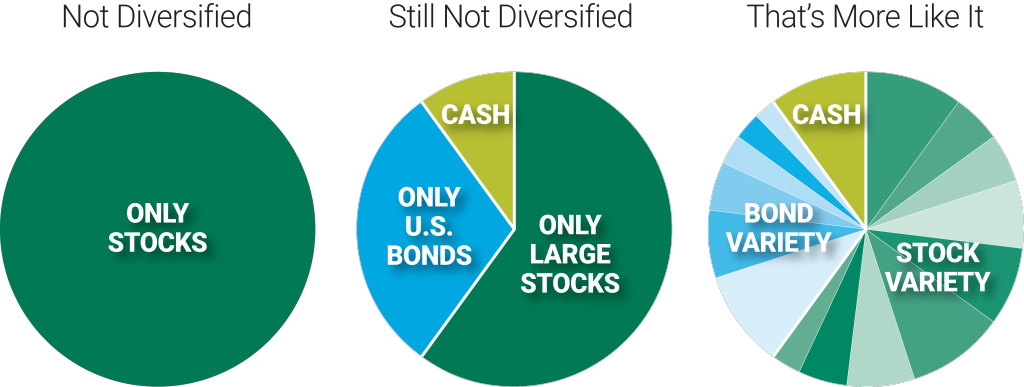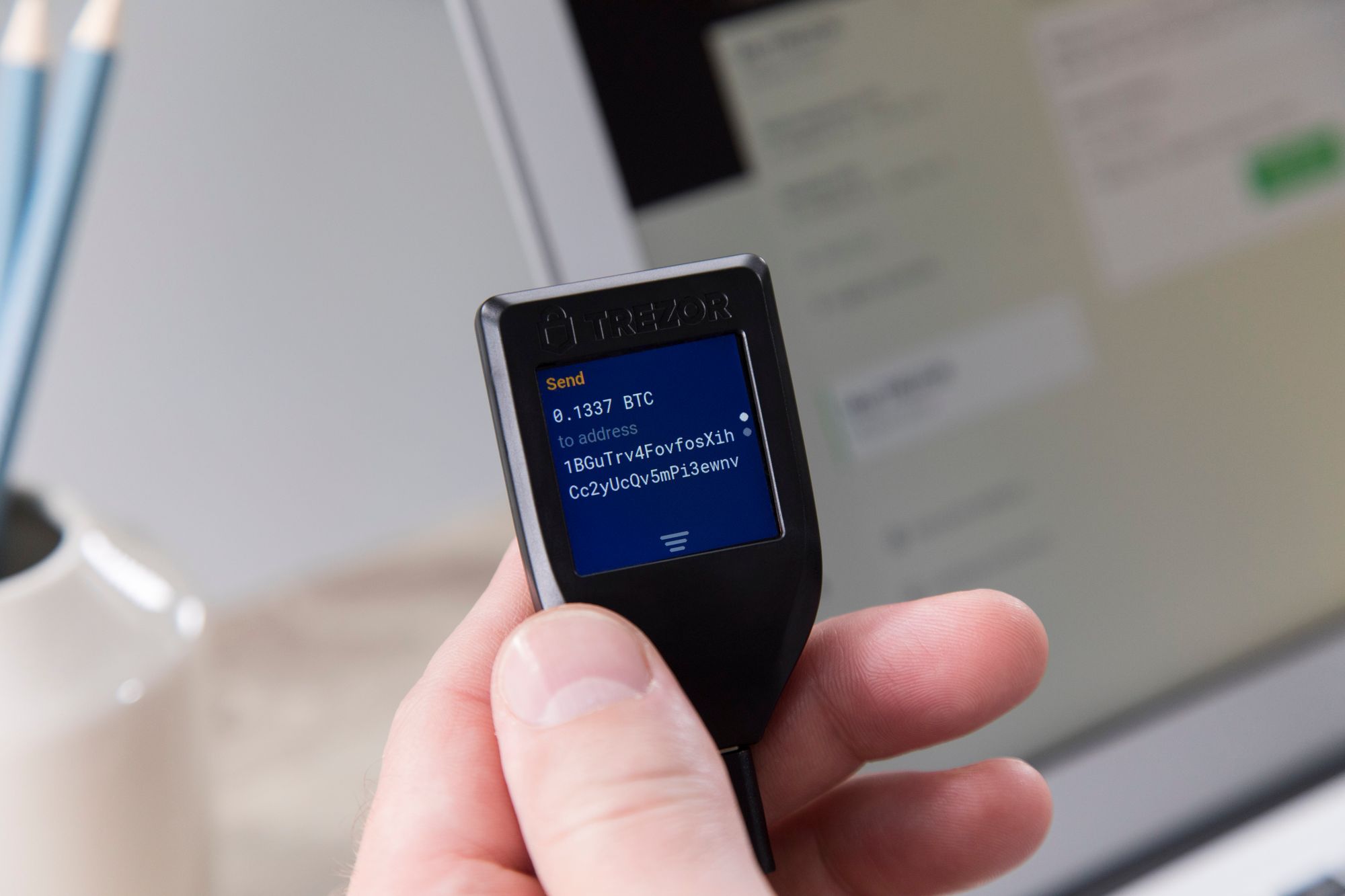Building Your Portfolio: Crypto and Traditional Investments
Situating cryptocurrencies like Bitcoin amid other more “traditional” asset classes has always been contentious. It’s an area where regulators and financial advisors across the globe have had trouble reaching any form of consistent resolution. What we do know is that Bitcoin is one of the largest assets in the world by market cap. As of press time, it's the world’s ninth largest asset by this metric, trailing Tesla and silver.
“Bitcoin is really the first truly independent asset in history,” says Invity’s CEO Štěpán Uherík. In a new interview, he weighed in on the value of Bitcoin as an asset, both on its own and as part of a larger investing strategy.
Where does Bitcoin fit in with traditional assets?
As the CEO of a company that is allowing users of all experience levels to compare exchanges and buy crypto, Štěpán has an interesting perspective on this topic. In fact, launching Invity was actually the culmination of years of experience in the investment sector—an industry which he first got involved in at the young age of 13.

“I started as an assistant and progressed to analyst, investment advisor, sales network manager and fund asset manager,” Štěpán explained, speaking on his early start. “In 2017, I discovered Bitcoin and was lucky enough to start working for SatoshiLabs as CFO. After two years, thanks to the support and trust of the owners, I was able to start building a new company within the SatoshiLabs Group—Invity—as its CEO.”
Today, Invity allows users to easily purchase crypto from non-custodial exchanges and publishes educational content designed to address misinformation and educate both newcomers and experienced traders alike. It exists under its parent company SatoshiLabs—famed for creating the popular Trezor hardware wallet.
“I think Bitcoin has already become an investment asset in its own way,” Štěpán explained. “It has separated itself from ‘traditional assets’ but it's also not among the ‘alternative investments’ we typically think of.”
“From an analyst's perspective, it has to be said that Bitcoin is still highly correlated with traditional financial markets. So it seems that we cannot yet say that Bitcoin is exactly a counterweight to the stock market, for example. But at the same time we must admit that things like gold, which has also had a significant correlation with the financial markets over the past decade, is not a real ‘alternative’ either.”
Despite this dynamic, Štěpán explains that diversifying by holding different types of assets is seen as a way to both mitigate risk and react to market events through portfolio rebalancing.
“There's a saying, something like ‘one who never makes mistakes need not diversify,’” he said. “In the first place, diversification helps reduce risk when building wealth. Diversification comes in many forms, from splitting your assets between multiple investment vehicles (stocks, bonds, real estate, Bitcoin), to geographic diversification, and time diversification: meaning making regular purchases based on dollar-cost averaging.”
Read more on Invity: Dollar-Cost Averaging: Bitcoin's Secret Weapon
When including Bitcoin in a portfolio, Štěpán personally identifies two key roles for this cryptocurrency. First, he says Bitcoin can serve as a so-called "digital gold": a tool that can appreciate in value over the long term. Second, it can serve as a form of "new money": allowing efficient exchanges in an increasingly interconnected and borderless world.
“The combination of these two functions is, in my view, unique, and never in history have these two functions been effectively combined,” he said. “Gold was the closest, but it lacks the efficiency of Bitcoin.”

How can people who don’t hold crypto build a portfolio?
To people who are yet to hold any form of digital currency, Štěpán has nothing but good things to say. “First of all, I would congratulate them for not succumbing to FOMO [the "fear of missing out"]. I think that's a great starting point in terms of forming your own opinion. Frankly, I think it's better to be skeptical of so-called digital assets than to be mindlessly and overly optimistic.”
At the same time, Štěpán recommends that people keep an open mind and go out of their way to read up on both a government monetary policy known as quantitative easing and Bitcoin’s founding principles.
“I believe that if they actually do this, there is no need to tell them more - the need for an independent, non-confiscatable way to store value follows naturally.”
For those who were already wanting to get started with crypto or have been convinced to do so after brushing up on these concepts, Štěpán shared his thoughts on how someone can go about getting started.
“I think the best time to buy Bitcoin is when you have money,” he said. “Investing is a mental process for the long term and the only way to protect and build wealth over the long term. So I would recommend starting with regular purchases in smaller amounts and do away with the idea of getting rich quick. I would also recommend purchasing a hardware wallet as soon as possible, so that you can safely store your assets.”

But how much should you start with? Obviously, this article is not here to provide financial advice of any kind. Though Štěpán does want to dispel the idea that people ought to be throwing more than they can afford into crypto.
“[You can choose to] start with a reasonable amount as soon as possible,” he said. “Just create an account on a Bitcoin exchange and buy your first Bitcoins via bank transfer or credit card. It's actually very easy to do this. It’s only the community that has grown around crypto that can make it seem overly complex.”
When it comes to Štěpán’s own investment portfolio, he structures it in three pillars.
“I think the first pillar of a portfolio should be investing in effective education and self-development. That is, building up oneself as a person, as someone with skills and the ability to make a good living,” he said. “The second pillar for me is traditional assets, primarily index funds, for example in the form of ETFs. The third pillar for me is Bitcoin—building non-confiscatable assets.”
“I would also argue that non-confiscatable assets include education. My parents always told me that ‘no one can ever take your education away from you.’ To my children, I would modify the phrase slightly: ‘No one can ever take away your education or your Bitcoin.’”
Bitcoin: An independent asset when held with care
Štěpán, who prides himself on being an advocate of Bitcoin, had a lot to say when it came to discussing the benefits of the digital asset on its own merits.
“At its simplest—and most important—Bitcoin is non-confiscatable. It is something people are able to manage themselves, and the Bitcoin network is a framework that is managed by the people that use it,” Štěpán said. “It therefore gives holders independence. In this sense, Bitcoin is really the first truly independent asset in history, in my opinion.”
Since Bitcoin runs on what’s known as a distributed ledger, in which users retain custody over their own holdings, this is fundamentally different from the experience that one might have when trading stocks and letting a central third party such as an investment platform hold onto your assets on your behalf.
Need a primer on distributed ledgers and the blockchain? Invity's Crypto Basics has you covered!
Yet with this freedom and autonomy, inexperienced users can find the landscape difficult to safely navigate. In this sense, Štěpán believes that Bitcoin’s biggest strength can be a disadvantage if not approached with the right mindset.
“The biggest disadvantage of Bitcoin is that a finely tuned system is supposed to be used by humans, with all their idiosyncrasies and weaknesses,” he explained. “If, as a holder, I am not responsible—for example I lose my private key or send to a wrong address—there is no one who can help me. With freedom, in short, comes responsibility. I fear that this has been the big obstacle to mass adoption so far.”
Sure enough, millions of dollars worth of Bitcoin and other digital assets is sent to incorrect addresses each year. For the most part, these assets become lost due to the difficulty associated with attempting to retrieve them (which is, in many cases, near impossible). When Bitcoin is lost in this way, it's most often for one of two key reasons: either the user put incorrect information into their transaction, or they fell victim to fraud. Fortunately, both of these issues can be addressed by an increased emphasis on user education.
“I believe that newcomers to Bitcoin need to first be provided with a safe environment and then be uncompromisingly educated and motivated to gradually assume their own personal responsibility willingly and with confidence.”
While Štěpán advocates increased user education—such as through Invity's blog series—he is less enthusiastic about the often seen trend in which users trade their autonomy for convenience. For instance, many people today use what’s known as a custodial exchange in order to buy and sell digital assets. While these platforms might be convenient, they involve letting a third party hold onto your assets for you.
“People try to pass the responsibility onto others and in doing so undermine their freedom and the freedom of the entire Bitcoin network,” he explained. For Invity’s part, all of the exchanges on its platform are non-custodial, allowing users to—in Štěpán Uherik’s opinion—maintain this freedom while also benefiting from a platform conveniently available to anyone.
Convinced? Get your Trezor Starter Pack today to kick off your crypto journey!
Disclaimer: This is not an investment recommendation. We provide a space to share the knowledge and information needed for self-education and critical thinking.